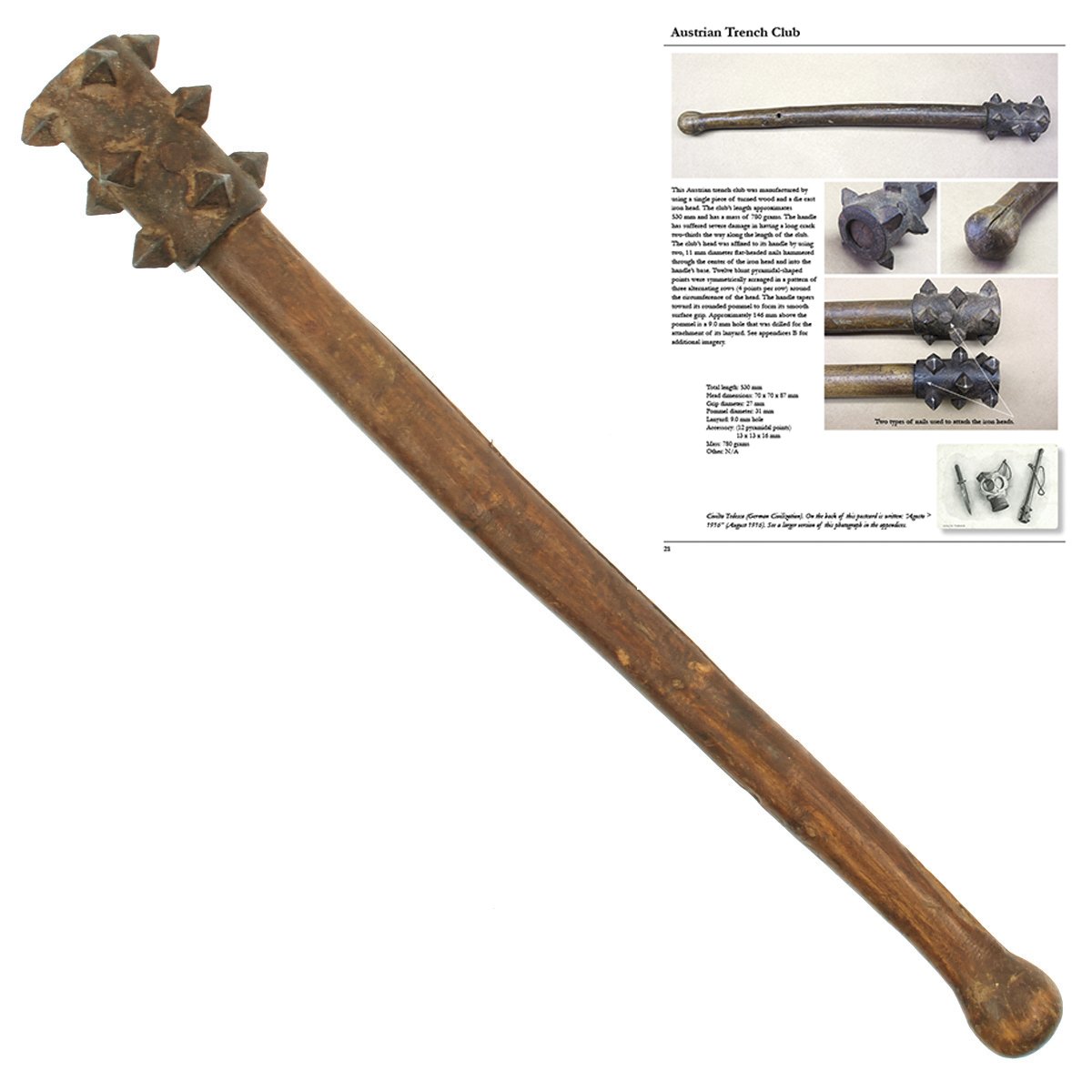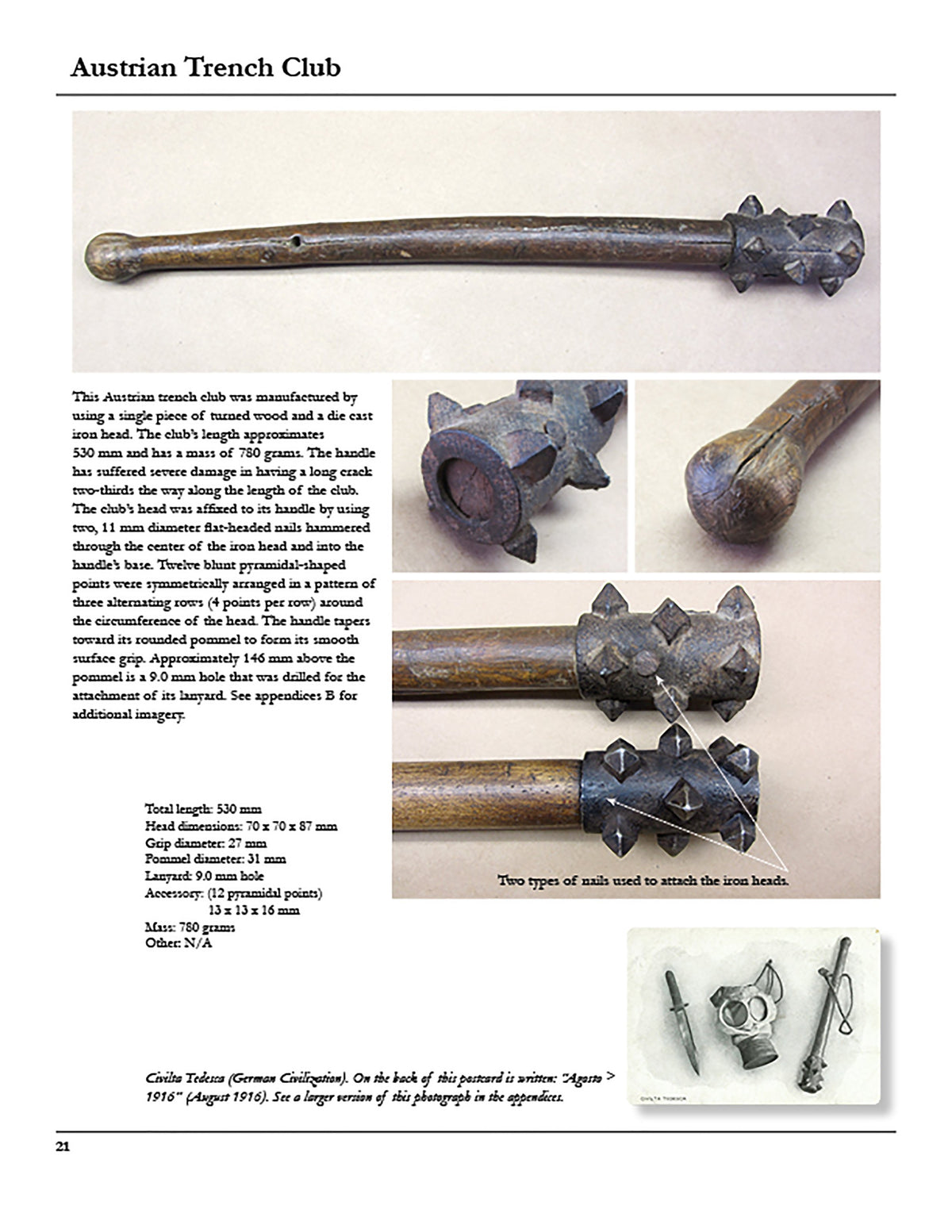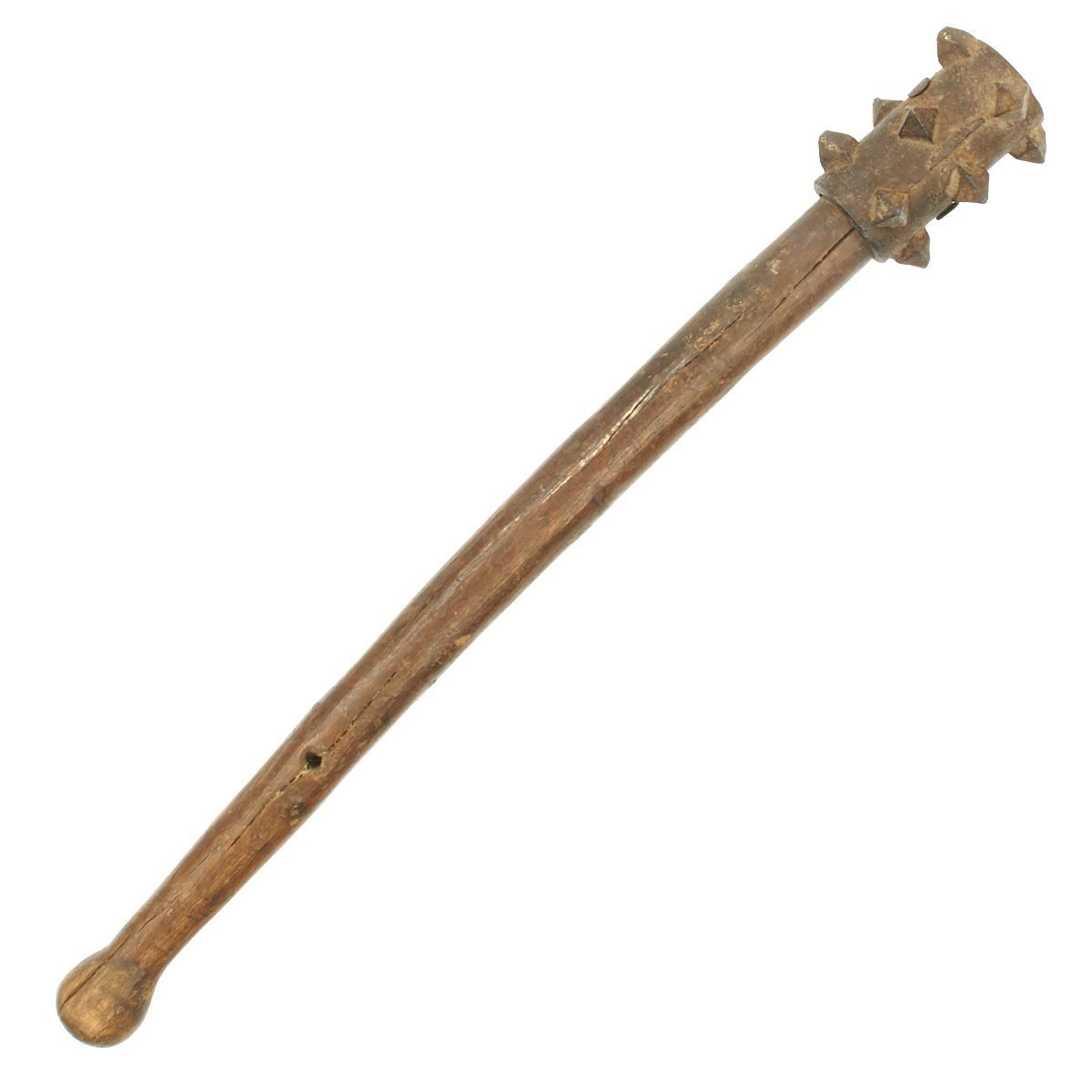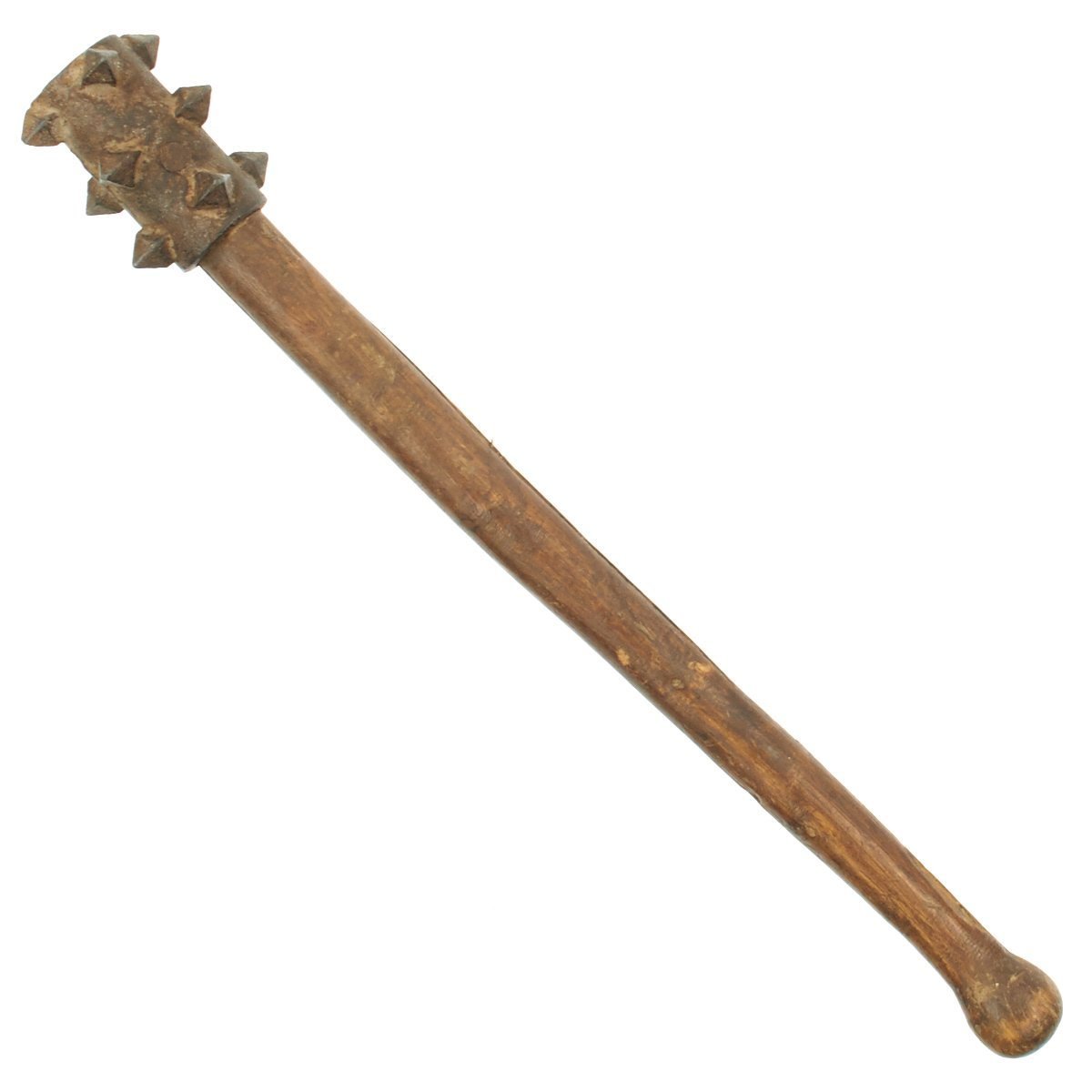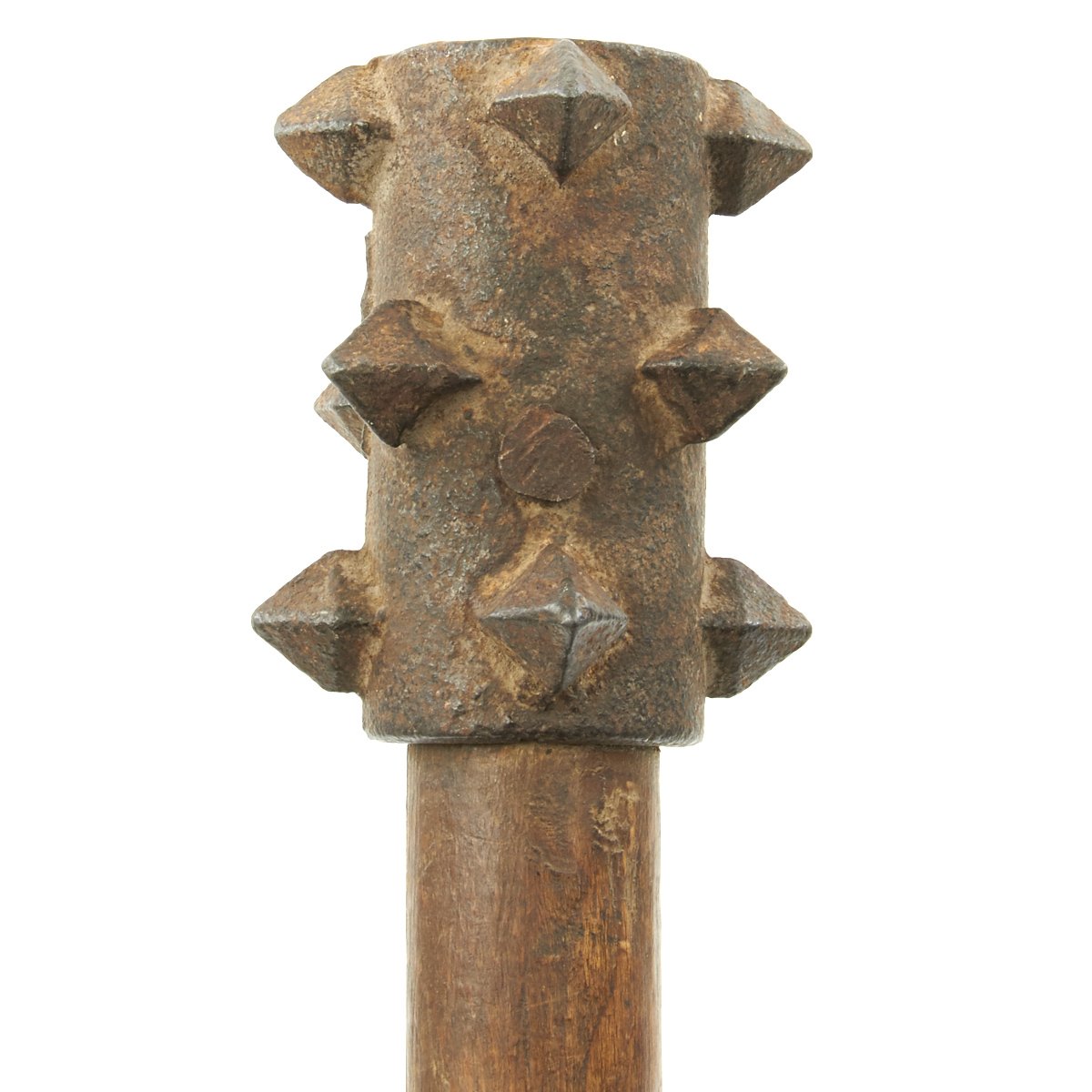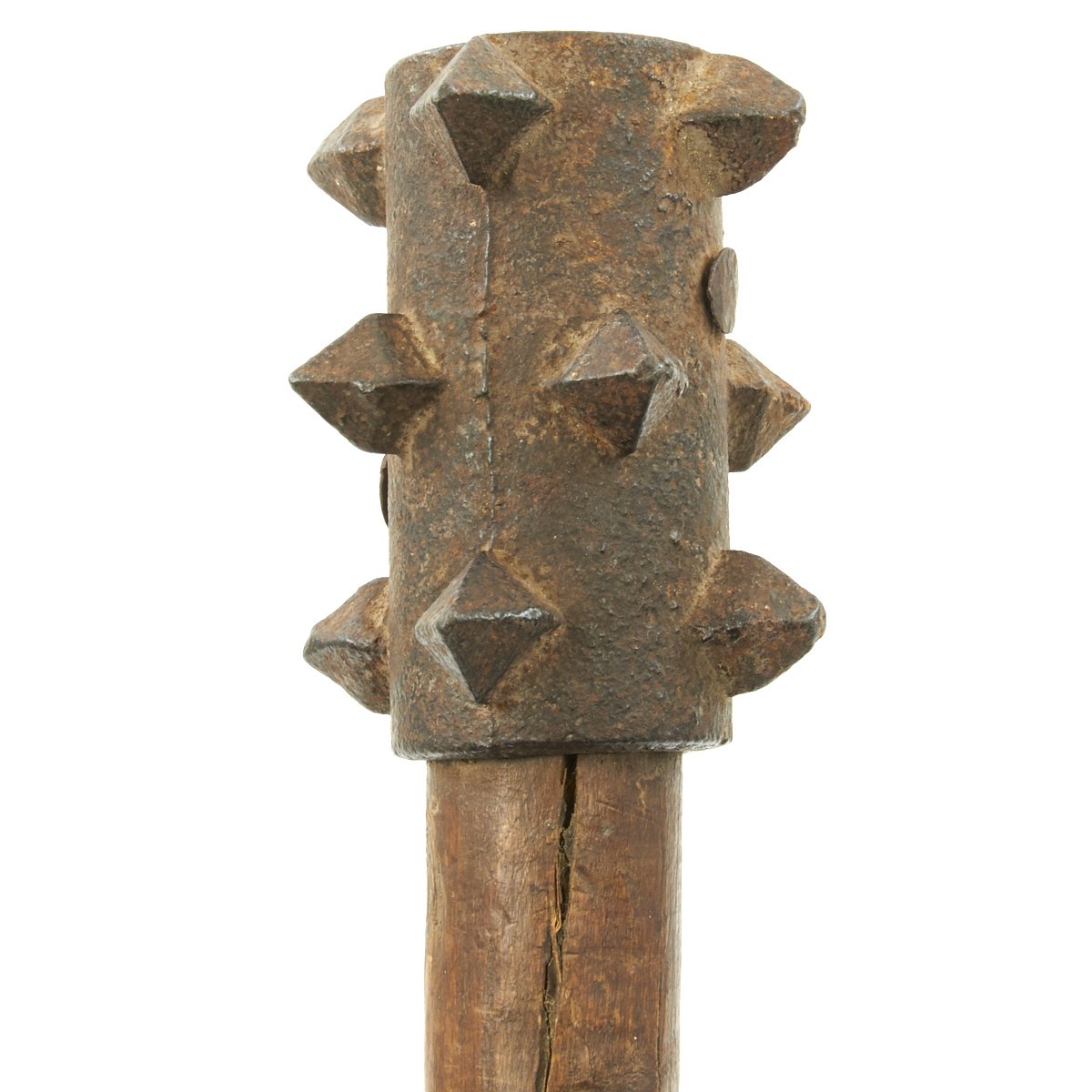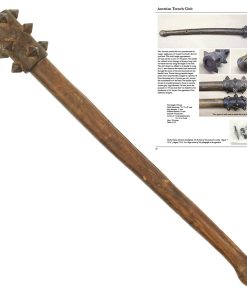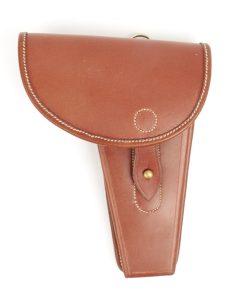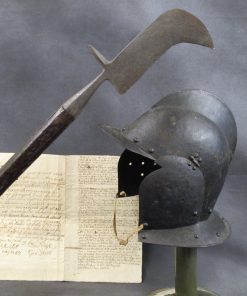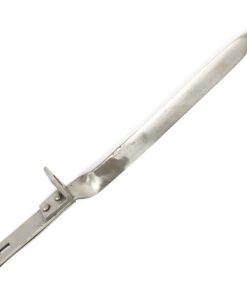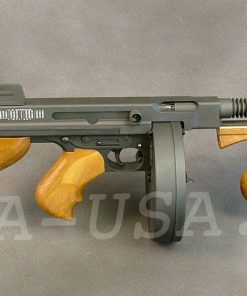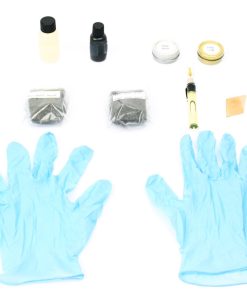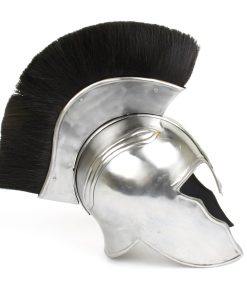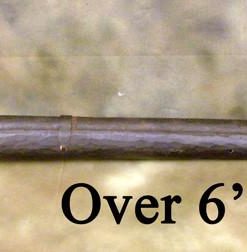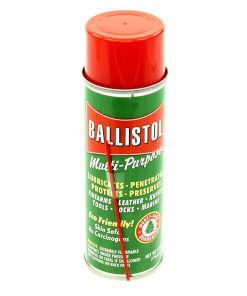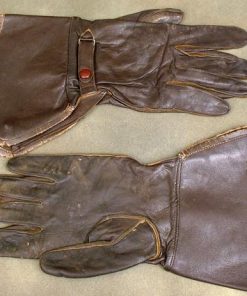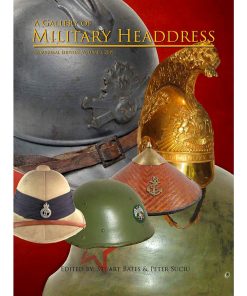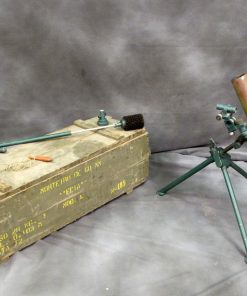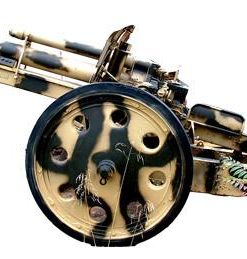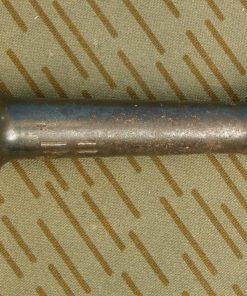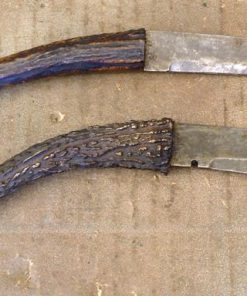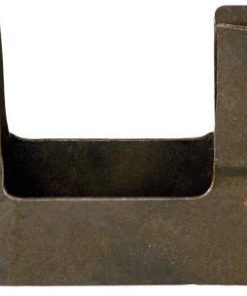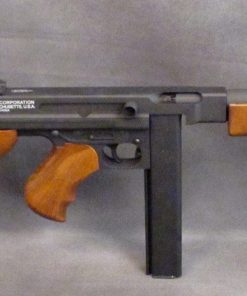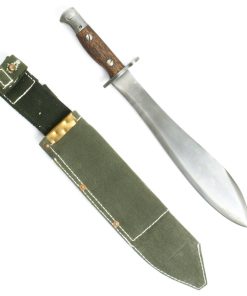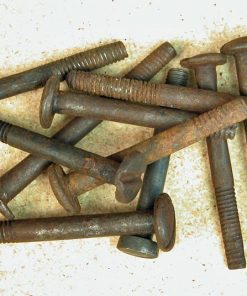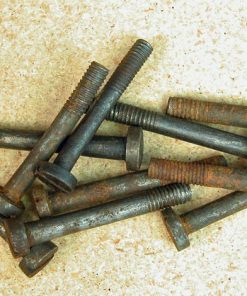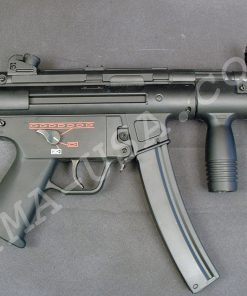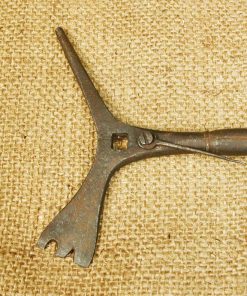Original Austro-Hungarian WWI Trench Raiding Club – Featured in Book At Arm’s Length on Page 21 Original Items
$ 1.595,00 $ 398,75
Original Item: Only One Available. Purchased from a collection used in At Arm’s Length Trench Clubs and Maces Vol. 1 by David F. Machnicki where this very club is featured on page 21! Please note that the attached page image and copy from the book is copyrighted material and the use of the page is done solely by permission of the author.
This Austrian trench club was manufactured by using a single piece of turned wood and a die cast iron bead. The club’s length is approximately 12 inches and has a mass of 1.8 pounds. The handle has some minor damage with a long crack two-thirds the way along the length of the club, but this does not effect its stability as the crack is shallow and does not run through the shaft. The club’s head was affixed to its handle by using two, 11 mm diameter flat-headed nags hammered through the center of the iron head and into the handle’s base. Twelve blunt pyramidal-shaped points were symmetrically arranged in a pattern of three alternating rows (4 points per row) around the circumference of the head. The handle tapers toward its rounded pommel to form a smooth surface grip. Approximately 146mm above the pommel is a 9mm drilled hole that was drilled for the attachment of a lanyard.
Trench raiding clubs were homemade melee weapons used by both the Allies and the Central Powers during World War I. Clubs were used during nighttime trench raiding expeditions as a quiet and effective way of killing or wounding enemy soldiers. The clubs were usually made out of wood. It was common practice to fix a metal object at the striking end (e.g. an empty Mills bomb) in order to maximize the injury inflicted. Another common design comprised a simple stave with the end drilled out and a lead weight inserted, with rows of large hobnails hammered in around its circumference. Most designs had some form of cord or leather strap at the end to wrap around the user’s wrist. Bosnian soldiers serving in the Austro-Hungarian army were fond of using maces. They were also used by officers to finish enemy soldiers wounded by poison gas attacks.
Trench clubs were manufactured in bulk by units based behind the lines. Typically, regimental carpenters and metal workers would make large numbers of the same design of club. They were generally used along with other “quiet” weapons such as trench knives, entrenching tools, bayonets, hatchets and pickaxe handles – backed up with revolvers and hand grenades.
Fast Shipping with Professional Packaging
Thanks to our longstanding association with UPS FedEx DHL, and other major international carriers, we are able to provide a range of shipping options. Our warehouse staff is expertly trained and will wrap your products according to our exact and precise specifications. Prior to shipping, your goods will be thoroughly examined and securely secured. We ship to thousands clients each day across multiple countries. This shows how we're dedicated to be the largest retailer on the internet. Warehouses and distribution centres can be located throughout Europe as well as the USA.
Note: Orders with more than one item will be assigned a processing date depending on the item.
Before shipping before shipping, we'll conduct a thorough inspection of the items you have ordered. Today, the majority of orders will be delivered within 48 hours. The delivery time will be between 3-7 days.
Returns
The stock is dynamic and we cannot completely manage it because multiple stakeholders are involved, including our factory and warehouse. So the actual stock may alter at any time. It's possible that you may not receive your order once the order has been made.
Our policy is valid for a period of 30 days. If you don't receive the product within 30 days, we are not able to issue a refund or an exchange.
You can only return an item if it is unused and in the same state as the day you received it. You must have the item in its original packaging.
Related products
Uncategorized
Uncategorized
Armored Burgonet Helmet & Polearm from Scottish Castle Leith Hall Circa 1700 Original Items
Uncategorized
Uncategorized
Uncategorized
Angolan Rebel 1970s era 60mm Inert Display Mortar from Angolan Civil War Original Items
Uncategorized
Uncategorized
Uncategorized
Band of Brothers ORIGINAL GERMAN WWII Le. F.H. 18 10.5cm ARTILLERY PIECE Original Items
Uncategorized
Uncategorized
Uncategorized
Uncategorized
Uncategorized
Uncategorized
Uncategorized
Uncategorized
